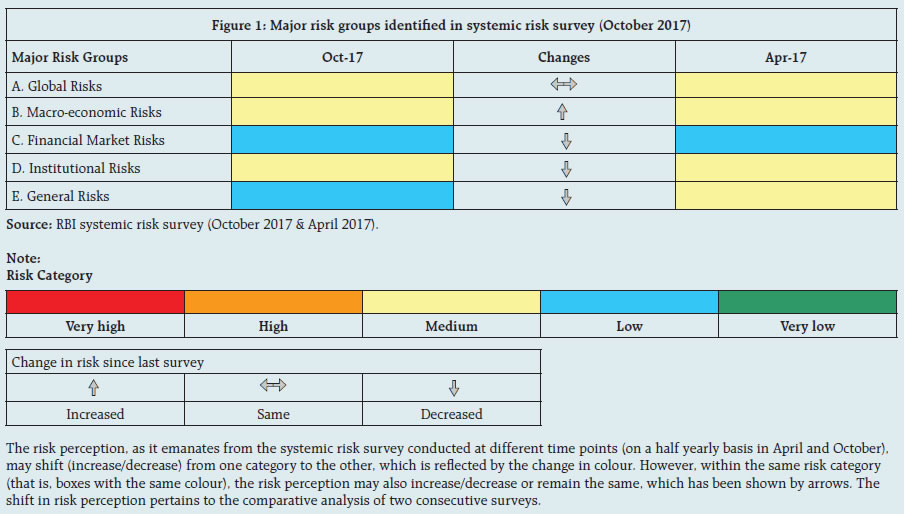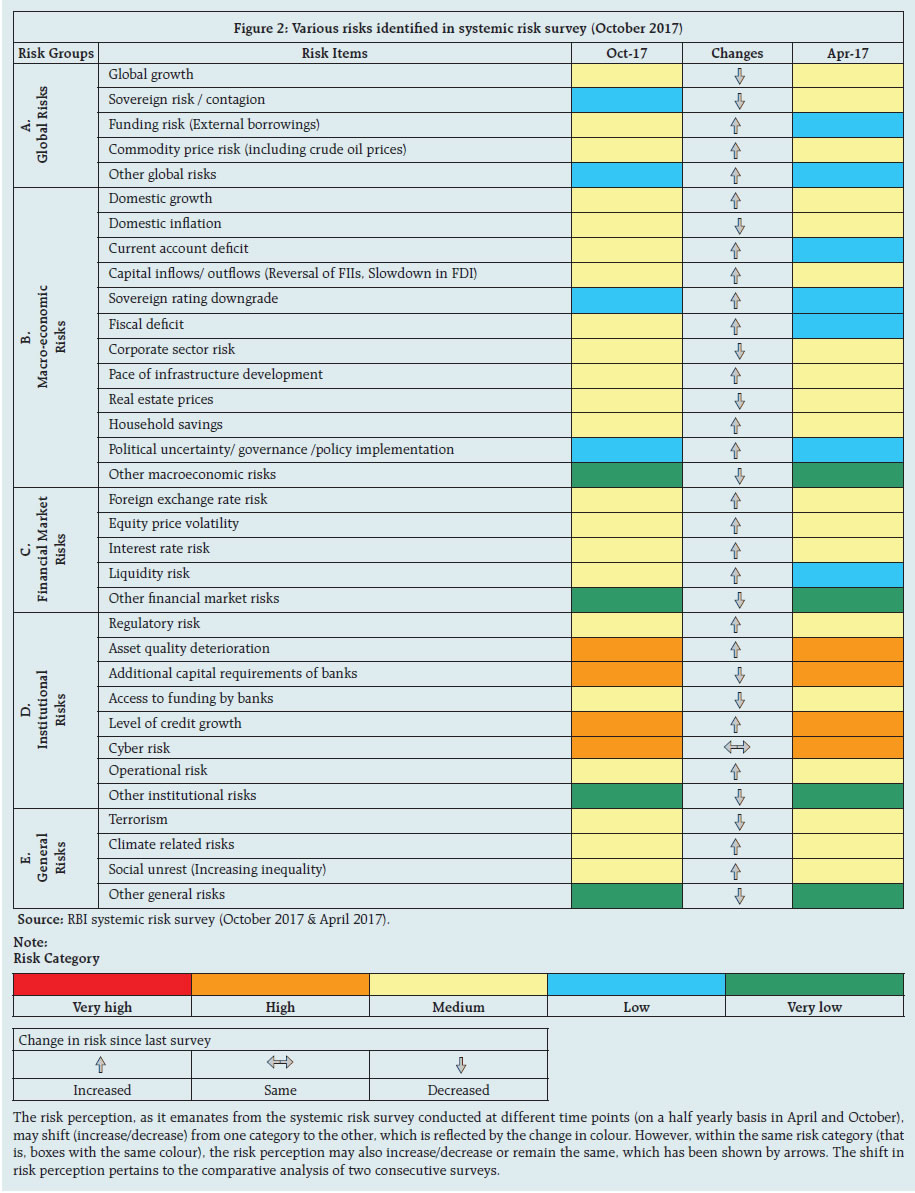The systemic risk survey (SRS), the thirteenth in the series, was conducted during October-November 2017 to capture the perceptions of experts, including market participants, on the major risks presently faced by the financial system. According to the survey results, global risks were perceived as medium risks affecting the financial system. The risk perception on macroeconomic conditions and institutional positions have also been categorised in the medium risk category in the current survey. Market risks and other general risk, however, have been perceived to be in low risk category in this survey (Figure 1). Within global risks, the risk on account of global growth and commodity prices were categorised as medium risk. Within the macroeconomic risks group, risks on account of domestic growth, domestic inflation, current account deficit, capital flows, corporate sector, pace of infrastructure development, real estate prices and household savings were considered to be in medium risk category in the current survey. The respondents have rated the foreign exchange risk, equity price volatility, liquidity and interest rate risk in medium risk category as part of the financial market risks. Among the institutional risks, the asset quality of banks, risk on account of capital requirement, credit growth and cyber risk were perceived as high risk factors (Figure 2). Geo-political risks continued to be on the watch list of every class of participants. Market participants specifically stressed a correction in domestic equity markets, volatility in foreign exchange markets consequent to evolving US trade/ tax policy outlook and swings in international commodity prices as risk factors. Most of the participants feel that while the pace of Insolvency and Bankruptcy code in resolving the bad assets in the Indian banking system has picked up, the final outcome and the level of haircut is critical to resolve the asset impairment crisis and improve the confidence in the domestic financial system. A majority of the participants acknowledged the various efforts of the government to improve the investment demand but maintained that it is now critical for private investment to pick up to support growth.   Majority of the participants in the current round of survey felt that the possibility of a high impact event occurring in the global financial system and the Indian financial system in the short term (upto 1 year) as well as in the medium term (1 to 3 years) is medium. However, close to half of the participants assigned a medium probability to the occurrence of a high impact event occurring in the domestic financial system in the medium term. There was a significant increase in the respondents in the current survey who reflected that they were fairly confident of the stability of the global and Indian financial system (Chart 1). On the issue of likely changes in demand for credit in the next three months, the majority of the respondents were of the view that it will remain unchanged. A majority of the respondents indicated that the average quality of credit would remain unchanged in the next three months. (Chart 2). |